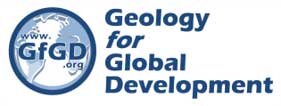Access to Geological Data and Expertise: A Key Factor in Delivering Clean Water and Sanitation in Eastern Africa
Ugandan MSc student Brenda Wagaba, supported by GfGD, uncovers the vital role of geological data and expertise in delivering clean water and sanitation in eastern Africa. With the paper now published, the research emphasizes the importance of quality databases, increased awareness, and capacity-building training for sustainable water management.
Cranfield University MSc student Brenda Wagaba, working in collaboration with Geology for Global Development (GfGD), has conducted and published a study to better understand the barriers and enablers in using geological data and expertise for water projects in eastern Africa. The research findings highlight the crucial role of geological knowledge in delivering clean water and sanitation in the region, particularly for small non-governmental organizations (NGOs).
Key findings of the research include the need for:
Support for access to quality geological databases, as existing datasets are often incomplete, unreliable, or outdated.
Increased awareness of and planning for geological expertise, as funders often lack understanding of the role geological data plays in successful water project delivery.
Training and support for local expertise to build geological capacity, with investment in geological and hydrogeological education to ensure the availability of local, affordable, and reliable expertise for water resource decision-making.
The study recommends that the professional geological community take steps to ensure their expertise is readily available to small NGOs. By strengthening the science-policy-practice interface through collaboration, geologists and NGOs can work together to support the implementation of Sustainable Development Goal 6 in eastern Africa.
The study formed the basis of GfGD's engagement at the UN Water Summit, where we emphasized the importance of geological expertise for sustainable water management. Support for this project was received from the International Union of Geological Sciences (IUGS), which is committed to capacity building and collaboration in the geological community.
The full research findings are based on a study submitted to the Journal of Water, Sanitation, and Hygiene for Development. GfGD plans to expand on the findings set out in this paper and explore themes in more detail through future work. To learn more about the study and GfGD's work, read the briefing note and check out the published paper.

